Eurovision 2018: Ireland’s Ryan O’Shaughnessy welcomes ban on Chinese broadcaster that ‘censored’ gay love story
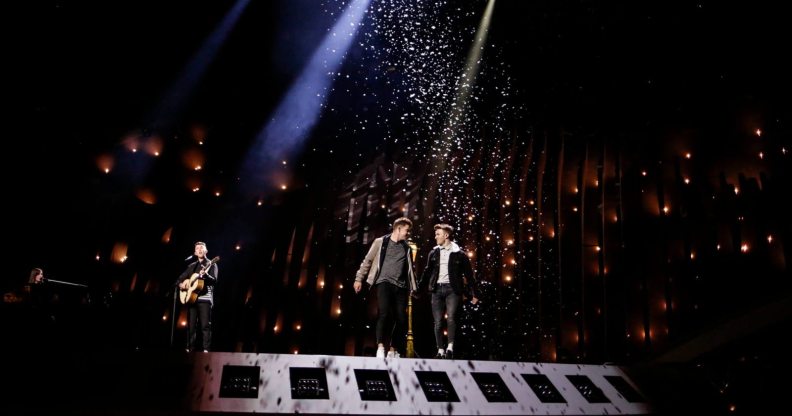
Ireland’s Eurovision entrant Ryan O’Shaughnessy has welcomed the decision to strip a Chinese broadcaster of rights to air the contest – after they censored a gay love story.
It was reported on Thursday that Mango TV, which holds the rights to broadcast Eurovision in China, censored the semi-final performance of Ireland’s entry “Together,” which features two male dancers re-enacting a love story.
Mango TV, part of state-owned broadcaster Hunan TV, also allegedly blurred out rainbow flags being waved by people in the crowd at the event elsewhere in the show.
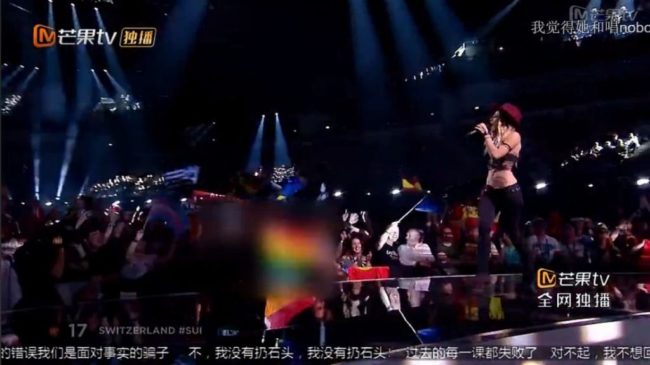
The European Broadcasting Union registered its objection by stripping Mango TV of its rights to the contest, and O’Shaughnessy welcomed the decision in an interview with the BBC.
Speaking to out presenter Rylan Clark-Neal during the second semi-final, the artist said: “I’d like to welcome the decision by the EBU to do that because from the very start we’ve said love is love… it doesn’t matter whether it’s between two guys, two girls or a guy and a girl.
“I think this is a really important decision by the EBU and they haven’t taken this lightly and I think it’s a move in the right direction so I’m happy about it.”
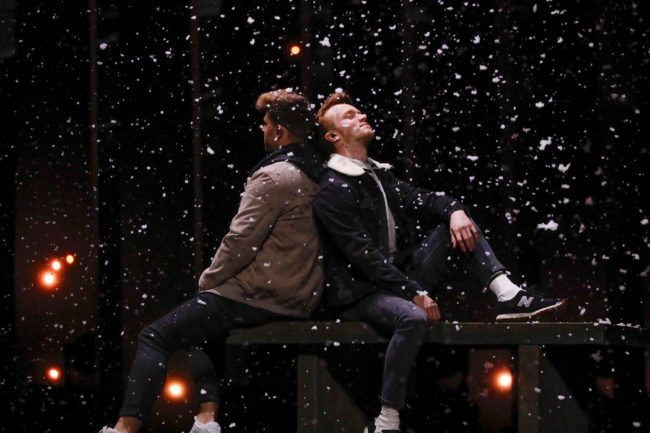
Clark-Neal responded, “I totally agree with you… this is Eurovision, it’s inclusive of every single person.”
The EBU said in a statement: “On the 9th of May, Chinese broadcaster Mango TV broadcast the first Semi-Final of the 2018 Eurovision Song Contest live but two performances were censored.
“This is not in line with the EBU’s values of universality and inclusivity and our proud tradition of celebrating diversity through music.
“It is with regret that we will therefore immediately be terminating our partnership with the broadcaster and they will not be permitted to broadcast the second Semi-Final or the Grand Final.”
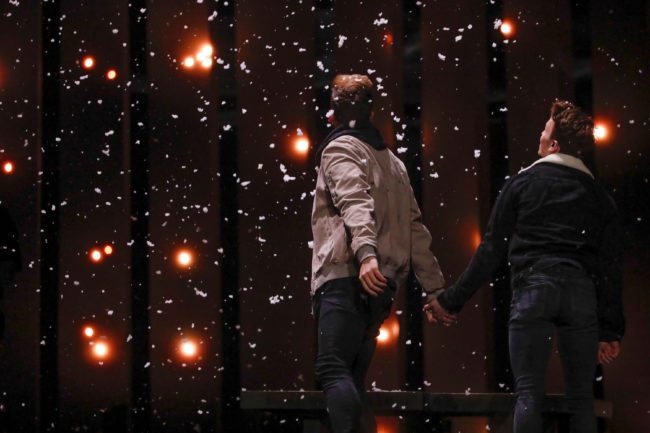
The Chinese government banned depictions of gay people on TV in 2016 as part of a cultural clampdown.
The rules state: “No television drama shall show abnormal sexual relationships and behaviours, such as incest, same-sex relationships, sexual perversion, sexual assault, sexual abuse, sexual violence, and so on.”
Speaking about his song, O’Shaughnessy said: “My only intention was to help people see that love is just love, and there’s no difference – whether it’s between a man and a woman, a woman and a woman or a man and a man.
“It’s so important, because not everyone is as liberal as the people in this [Eurovision press conference] room are, and the people I’ve gotten to meet over the past week.
“It’s an important thing, and I’m very proud of my country for making that change a few weeks back. I know a lot of Irish people went home to vote for the referendum on same-sex marriage, and we’re bringing a new energy back to that topic.”
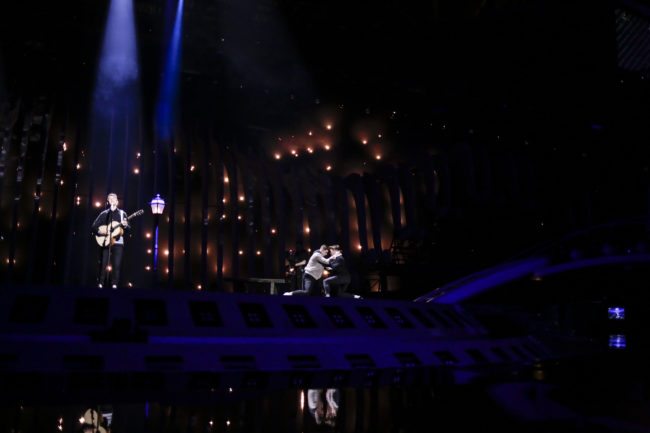
The entry featured interpretive dancers Kevin O’Dwyer and Alan McGrath re-enacting a same-sex love story, earning praise from audience members.
Speaking to the Irish Independent, O’Shaughnessy added: “We have been the underdogs since we came here and no one thinks Ireland has what it had.
“But we made the Eurovision what it was and we are going to make it what it is in the future. We are going to win it on Saturday.
“Dublin for 2019! Unfortunately for RTE… I hope they can afford it. I am feeling so happy and I am feeling so proud of my team.”

